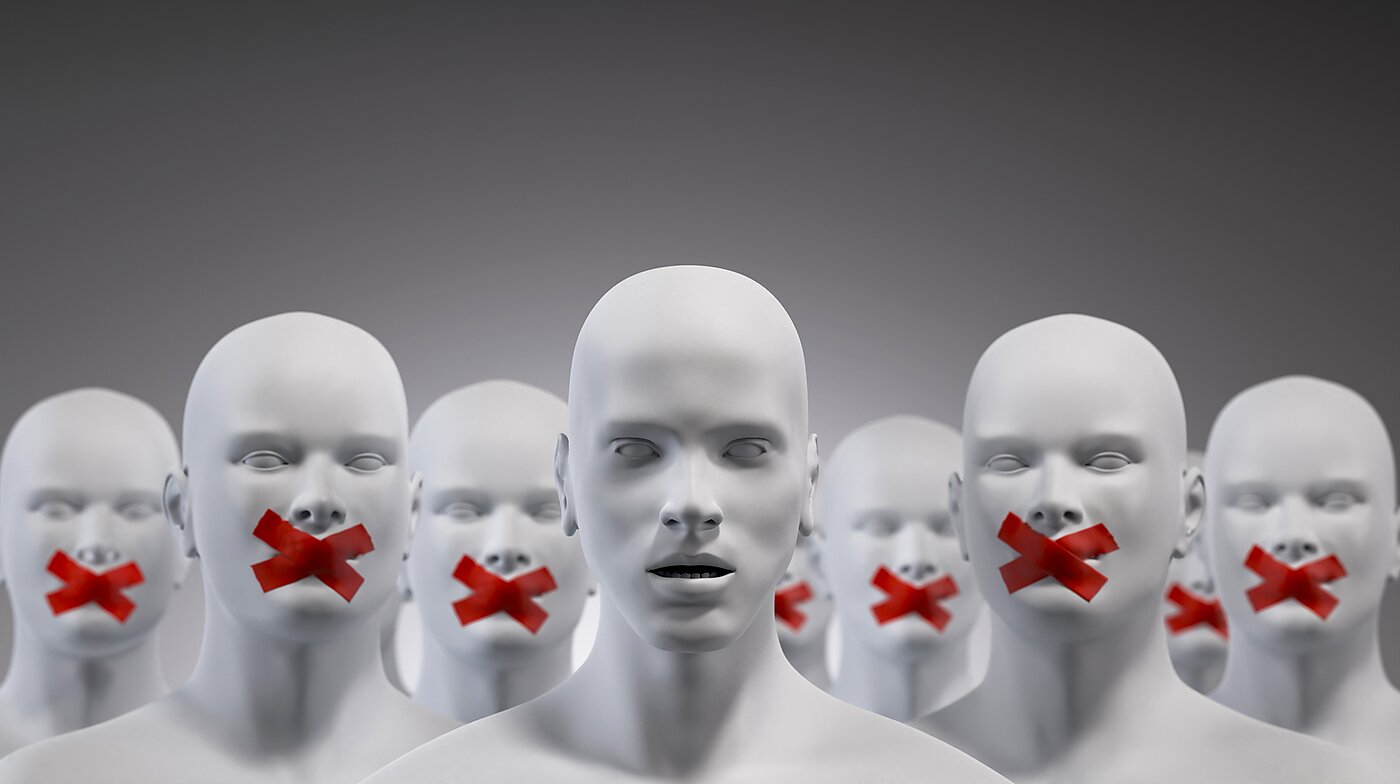Free speech scholars and advocates have written about the general decline in freedom of expression that has occurred over the past two decades. Despite great technological advances that make communicating immensely easier—social media, encrypted communications, and ubiquitous computers and cell phones—many governmental policies and public opinion around the world have soured on the importance of expression.
In this recession of free speech, the Future of Free Speech project, a collaborative venture between the Justitia think tank and Vanderbilt University, has released a report that examines the importance of free speech as a “safety valve” to prevent social conflict. Among the issues studied in the report is the common belief today that “extreme” or disfavored speech around contentious topics can lead to violence and social conflict. This belief can even be seen in the glib slogans “silence is violence” or “words are violence.”
By ascribing actual violence to mere differences of opinion, this view argues that allowing such expression will lead to more violence. In other words, free speech can normalize and spread beliefs that will produce more violence. It can allow more dissension within a society that ultimately erupts into violent conflict.
But the Future of Free Speech report, by executive director Jacob Mchangama and Christian Bjørnskov challenges that narrative. Rather than producing more violence, greater expression—not merely defined as First Amendment or other legal protections, but also the ability to safely and freely express oneself in practice—is often correlated with less societal conflict and violence.
Speech can function as a safety valve that allows individuals to express frustrations and vent their anger without resorting to violence. Speech allows policymakers to understand the views of their constituents in order to legislate effectively. For instance, it allows civil society to form and address the sources of social conflict, as seen in the struggle for civil rights in the 1950s and 1960s, where civil society helped guide peaceful protests and expression to overcome the evils of segregation and Jim Crow.
Censorship, on the other hand, can even create more conflicts as it limits legitimate avenues for discussion, according to the report. The study finds that speech “restrictions will lead to more conflict, a consequence that to some extent may be driven by government misuse of restrictions. Such problems are more often than not ignored by the legal and political literature on the topic.”
In other words, government abuse of its censorial powers increases the frustration of those who are silenced and potentially leads some to turn to conflict and violence.
The Future of Free Speech report discovered that among democracies and multiparty autocracies with relatively strong protections for citizens’ rights, freedom of expression is strongly and significantly associated with less social conflict. Simply, in democratic and relatively less authoritarian states, greater freedom of expression means less social conflict and more restrictions on expression may result in more conflict.
However, researchers also found that “it appears that increasing the freedom of expression is associated with more conflict in single-party regimes.” This is possibly due to autocratic governments channeling expression against already socially disfavored groups that are unprotected or even targeted as enemies of the state. Additionally, the brutal repression and lack of expression in communist states may result in very little outward conflict, but such repression also crushes human flourishing.
Indeed, the safety valve justification is not the only reason to treasure freedom of expression. Other reasons include:
- self-governance and government accountability;
- individual liberty and fulfillment;
- the search for truth and knowledge in the marketplace of ideas;
- understanding what others believe;
- promoting tolerance;
- and that censorship may be ineffective or even backfire.
The next time you hear an expert or policymaker say we need to restrict speech to reduce conflict and violence, know that this is not a tradeoff we need to make.
In light of the horrendous acts of terrorism against Israel and the ongoing conflict in Gaza, many critics are saying we need to limit speech and silence others in the name of safety and to stop alleged misinformation. Citing the conflict, the EU is for the first time invoking—and already abusing—the Digital Services Act to cow social media companies into removing protected speech.
Yes, we should stop activity that is violent or directly incites people to imminent violence. But undesirable opinions are not violence. Words are not violence, and we can have safety and liberty so long as we reject the idea that free expression is dangerous.

